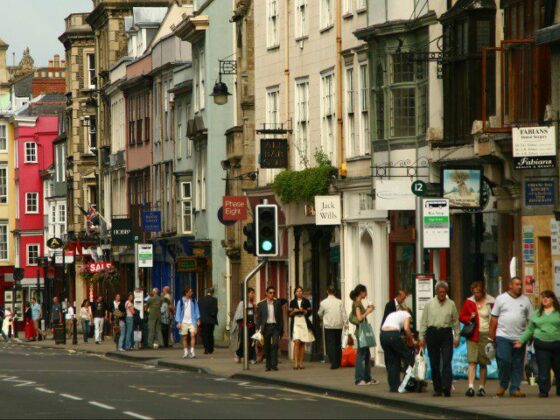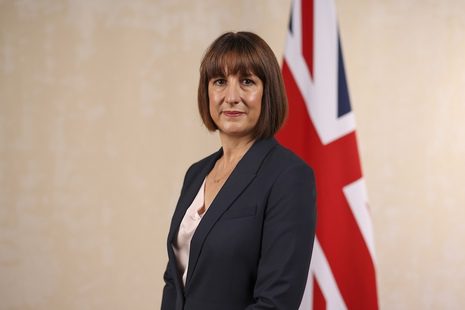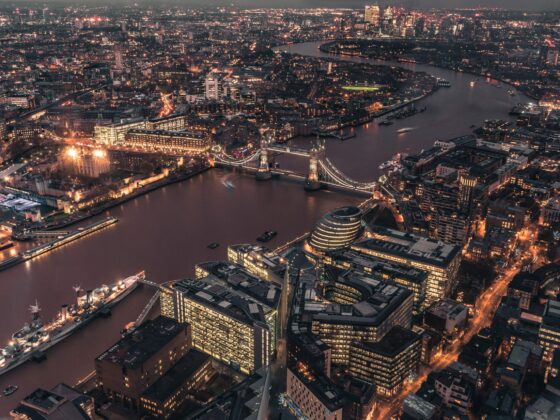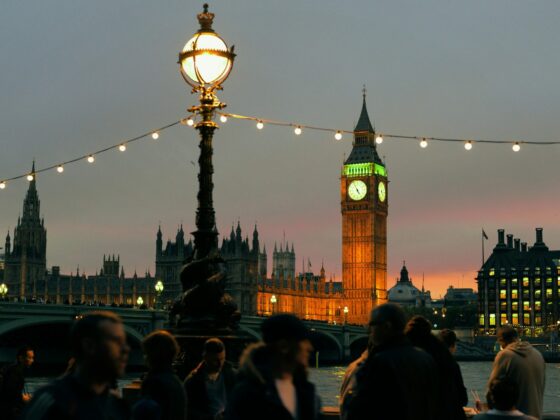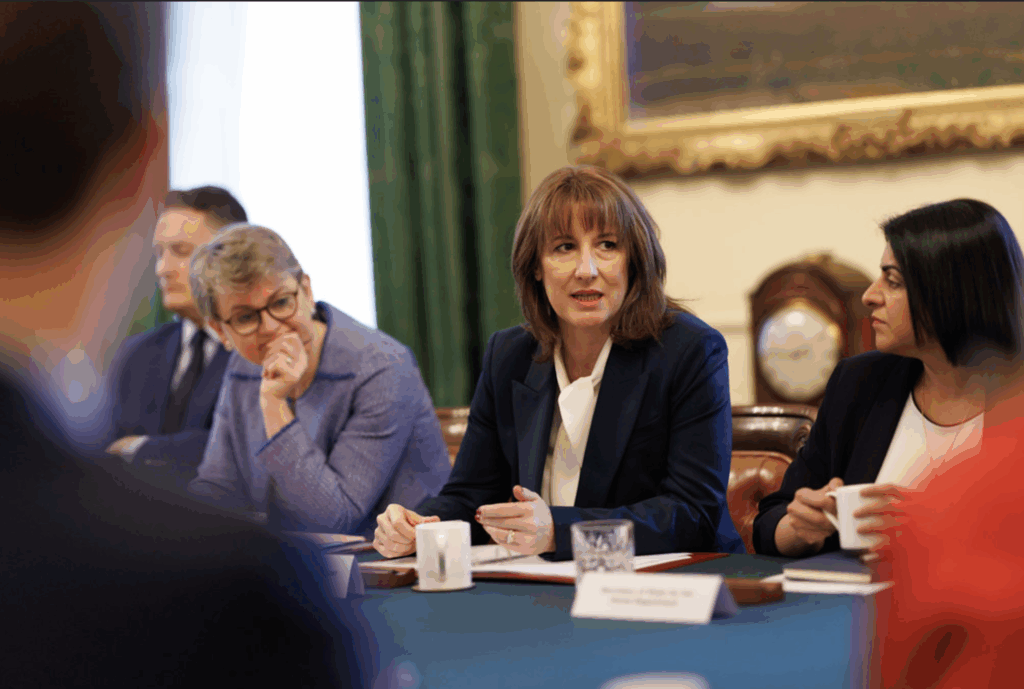
Reading Time: 8 minutes
UK: Chancellor Rachel Reeves delivered the Autumn Budget today, revealing “permanently lower business tax rates” for hospitality properties.
The 2025 Budget aims to fill a £20 billion spending gap, with tax rises amounting to £26 billion.
A sugar tax, formally known as the soft drinks industry levy (SDIL), and a tax on overnight stays in England were among the measures previously announced.
From April 2026, the government also confirmed that the National Living Wage will increase to £12.71 – an increase of 4.1 per cent. The wage rate for 18-20-year-olds will also rise by 8.5 per cent to £10.85. In total, the wage increases represent an estimated £1.4 billion in additional costs for hospitality businesses.
Revealed in today’s Budget, the government will “permanently lower business tax rates” for more than 750,000 retail, hospitality and leisure properties. This is set to be funded through higher rates on properties with rateable values (RVs) above £500,000 such as warehouses used by online retail giants.
Income tax and National Insurance thresholds will be frozen until the end of the 2030-31 financial year. This means hospitality staff and guests will pay more tax as wages rise, squeezing personal budgets. The Office for Budget Responsibility (OBR) estimates that an additional 780,000 people will be brought into paying income tax in 2029-30 as a result of the extension to the freezes.
Salary-sacrificed pension contributions above an annual £2,000 threshold will also no longer be exempt from National Insurance. This will come into force from April 2029.
The Budget also included changes to capital allowances, which could affect investment plans. From 1 January 2026, a new 40 per cent First Year Allowance will allow businesses to claim upfront tax relief on qualifying assets, including most leased equipment. At the same time, the main rate writing-down allowance for other assets will drop from 18 per cent to 14 per cent from April 2026. The measures are expected to influence the timing of refurbishments and CapEx projects.
Reeves revealed that the government is raising rates of tax on property, savings and dividend income. Tax on dividend income will rise by two percentage points from April 2026. This increases the ordinary rate from 8.75 per cent to 10.75 per cent and the upper rate from 33.75 per cent to 35.75 per cent. The additional rate will remain at 39.35 per cent.
The government will also introduce separate tax rates for property income from April 2027. It will now be charged at individual rates.
Reeves told the Commons: “It’s not fair that the tax system treats different types of income so differently and so I will increase the basic and higher rate of tax on property, savings and dividend income by two percentage points, and the additional rate of tax on property and savings income by two percentage points.”
An annual mansion tax will be applied from 2028 to properties valued above £2 million, starting at £2,500 and rising to £7,500 for homes worth over £5 million. Affecting under one per cent of properties, the surcharge is forecast to raise £400 million per year and will sit on top of existing council tax.
The OBR expects inflation to reach 3.5 per cent for this year, up from 3.2 per cent when initially forecast in March. Predictions for 2026 have also been lifted from 2.1 per cent to 2.5 per cent.
Industry reaction
Kate Nicholls, chair, UKHospitality
“Increases to minimum wage rates are yet another cost for hospitality businesses to balance, at a time when they are already being taxed out. Hospitality businesses have reached their limit of absorbing seemingly endless additional costs. They will simply all be passed through to the consumer, ultimately fuelling inflation.
“The 5p [business rates] discount is only a quarter of the maximum 20p discount the government proposed last year. It is simply not enough to offset these costs and redress the damage it will do to business viability and job opportunities. This is particularly frustrating given changes to business rates valuations will mean that many hospitality businesses’ tax bills will still significantly rise, alongside increases to the minimum wage adding extra cost. Business tax rates for hospitality must continue to fall for the rest of this parliament.”
Marc Crothall, chief executive, Scottish Tourism Alliance
“With today’s announcement that personal tax thresholds will be frozen for a further three years, pulling more people into higher tax brackets, household disposable incomes will come under even greater pressure, further weakening domestic tourism demand at a time when the sector can least afford it.
“Following the Chancellor’s announcement on business rates for hospitality businesses in England, we would urge the Scottish Government to deliver a permanent reduction in business rates for businesses of all sizes in its 2026-27 Budget announcement. This would give much-needed certainty and ensure our businesses can effectively compete with their counterparts over the border… there will now be even greater pressure on the Scottish Government to ensure that businesses north of the border are not placed at a further competitive disadvantage.”
Devin Grosse, CEO, Focus Hotels
“Salary-sacrifice pensions have been a really important way for us to attract people, because we could put the National Insurance savings straight into an employee’s pension. People really value that, and it’s one of the reasons they join us and stay rather than leave for slightly higher-paid jobs elsewhere. Any reduction in the ability to do this is a real disincentive. It effectively feels like a pay cut for staff and makes it harder to attract talent. We’re going to have to work out how to handle it, but it’s definitely a big issue.”
Neil Braude, COO, Imperial London Hotels
“Whilst lower business rates are good news for parts of the industry, larger owner operators like us will see limited benefits from these measures. We support anything that cultivates the neighbourhoods we operate in, and hope that the relief smaller operators will see will help to make our locations vibrant and dynamic places to live, work, and explore – but the supplementary charge on properties with a rateable value above £500,000 will have a knock-on effect on larger operators that employ and attract thousands of people to their neighbourhoods each year.
“Moreover, the continued pressure on household incomes as a direct result of the lock on income tax will mean that restaurants, bars, and hotels will need to do even more to get customers through the door and manage costs. Whilst the industry will continue to respond to these challenges, it will require more investment and that – paired with softer demand and more bureaucracy – will make it hard for some to strike the right balance.”
Tim Rumney, CEO, BWH Hotels GB
“Today’s Budget is a missed opportunity to reverse the damage done to a sector that has lost 89,000 jobs in nine months – three times the rate seen in the wider economy. A ‘tourist tax’ might look like an easy way to raise revenue, but in reality it risks undermining the very hospitality and tourism businesses that keep our economy vibrant.
“At a time when operating costs are already extraordinarily high, adding another charge on top of our 20 per cent rate of VAT will punish both visitors and local businesses. This is a move that will do more harm than good to the industry and risks ultimately deterring visitors and costing the public more than £500 million.
“The increase in the National Living Wage will add even more pressure to a sector still reeling from decisions made in 2024.”
Giles Fuchs, owner, Burgh Island Hotel
“Permanently lower business rates for hospitality offer necessary relief, but this Budget exposes a fundamental gap between what’s being given and what’s simultaneously being taken away. The decision provides stability at a time when operators face mounting cost pressures, yet the wider package underlines how tight the operating environment will remain. The National Living Wage increase, combined with frozen income tax thresholds, will increase employer costs while reducing disposable income for potential visitors. Add powers for English mayors to levy visitor taxes and higher taxes on property, savings and dividend income, and operators are left absorbing structural financial pressures without parallel investment in growth.
“The sector now needs a long-term strategy that goes beyond rate reductions. Support for workforce recruitment and retention, access to training, help to accelerate the shift to low-carbon technologies and sustained investment in local infrastructure would create conditions for stronger, future-focused growth. A coherent approach that aligns fiscal measures with a broader competitiveness plan is essential if hospitality and tourism are to thrive rather than simply manage through continued pressure.”
Adam Flint, chair, Bristol Hoteliers Association
“If anything, times will become even more challenging for us, thanks to the higher-than-expected increase in the wage rate for 18-to 20-year-olds, adding to the burden of soaring food prices, increased insurance premiums, the recent increase in national insurance contributions and continued pressures of rising energy costs.
“As for the tourist tax, we know that many European cities already have this, but in most of these places, hospitality is taxed at five per cent VAT rather than the 20 per cent here. Add to that the Chancellor’s decision to freeze personal tax thresholds for a further three years, which means disposable incomes will be reduced in real terms, further limiting people’s ability to spend on hospitality and leisure, and they are certainly likely to be deterred from going to places charging the tourist tax.”
Clive Wratten, CEO, Business Travel Association
“An overnight visitor levy may appear modest, but for regional cities competing for conferences, investment and talent, it becomes a direct deterrent. Overnight levies will hit those very areas the government is seeking to level up, penalising travellers whose visits fuel local economies.”
Chris Gamm, CEO, Springboard
“Today’s outcome from the Autumn Budget is deeply concerning for the hospitality industry. With the minimum wage set to increase and a freeze on income tax and NI thresholds extended, we expect entry-level hospitality roles to decrease and further job losses to follow. We also predict that the long-term effects of this will mean, in time, there will be a shortage of future managers and leaders.
“This will put immense pressure on the sector and on charities like Springboard, which are committed to training and supporting people into work. We urge the Government to work closely with us and the wider industry to ensure adequate support is put in place to protect jobs, sustain training and development, and safeguard the long-term resilience of this essential sector.”
Liam Crooks, MD of EMEA hospitality, Lightspeed
“Hospitality is made up of many independent businesses who don’t necessarily have the same vying power or budgets as big sectors like tech. Despite being one of the UK’s biggest employers and the backdrop to many of life’s key moments, challenges like staffing, elevated costs and taxes are continuing to hold the industry back.
“While changes to business rates may offer some relief to venues, some could end up being penalised by charges that don’t reflect their actual profitability. An approach like this doesn’t work; the hospitality industry needs meaningful, sustained support from the government that recognises its true social and economic value.”
Alastair Winsey, founder and CEO, AIVA Revolution
“Once again, the hospitality sector has been left to fend for itself. Costs for employers continue to climb, yet venues and small businesses have almost no room to raise prices when consumers are already stretched.
“It’s becoming increasingly unviable for entrepreneurs to enter, or even remain in, the industry under these conditions. Hospitality is a vital pillar of our economy and holds our communities together; it needs meaningful support and investment if it’s going to modernise, compete and survive.”
Matthew Prosser, senior director, Agilysys
“Today’s Budget offers some respite for the hospitality sector at a moment when stability and confidence are urgently needed. The government’s commitment to “permanently lower tax rates” for more than 750,000 retail, hospitality and leisure properties is a step in the right direction, giving operators breathing room as they now work to manage rising costs that ought to come with raising the national minimum wage for workers.
“Yet uncertainty remains. The proposal of a nationwide tourist tax still looms in the background, and such a levy would dampen domestic tourism. For hotels in regions that depend heavily on local travellers, additional overnight charges risk deterring bookings and widening the performance gap between operators who can adapt quickly and those who cannot.”
Craig Hughes, partner and head of private client services, Menzies LLP
“Although this measure [property tax] is expected to generate an additional £0.5 billion, it risks further distorting the property market and represents yet another setback for landlords and the wider rental sector. It is important to recognise that the rental market provides essential housing for many working individuals who cannot yet afford to buy a home. Repeatedly targeting landlords through tax adjustments may encourage them to exit the market, reducing the supply of rental properties and, in turn, driving up rents for tenants.
“Ultimately, the additional tax revenue is relatively modest, and the long-term impact is likely to fall not on landlords, but on the very people who rely on the rental sector for affordable housing.”
Michael Shapiro, commercial property partner, Spencer West LLP
“Despite lowering business rates for many retail and hospitality businesses through higher rates on warehouses used by online retail companies, the fact remains that the local high street has many empty retail and hospitality premises.
“While an overhaul is scheduled for April 2026, this is something that needs to be addressed with urgency. Hospitality and retail businesses continue to struggle through the current system, which is further compounded by the rise in NI in the last Budget and the incoming rise to the minimum wage in January. The domino effect of this on retail and hospitality workers, builders, and tradespeople cannot be underestimated, and the impact is clear to see by walking along any high street.”


